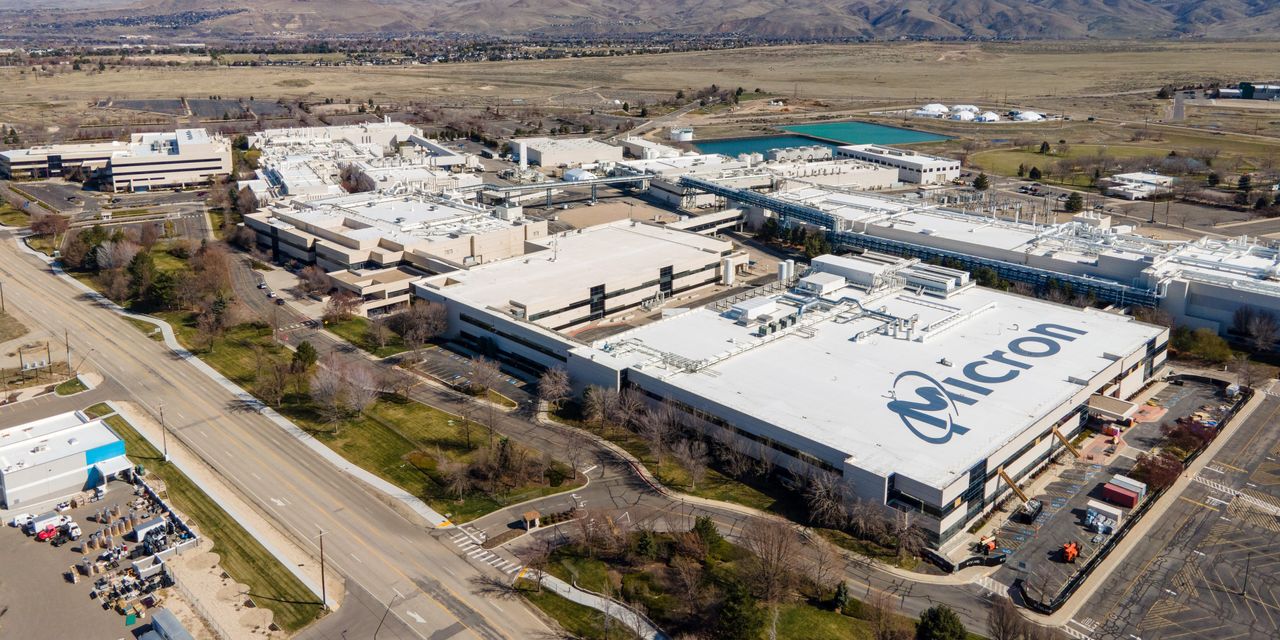The memory-chip maker
Micron Technology Inc.
MU 2.25%
plans to boost investment to more than $150 billion over the coming decade to cater to booming demand and is urging Congress to pass legislation that would aid domestic plant expansion.
Micron Chief Executive Officer
Sanjay Mehrotra
said some of the planned spending would go toward expansion of existing chip-production facilities and potential construction of new ones. “We will be engaging with the governments around the globe, including in the U.S., to address our needs for growing our supply in line with our demand expectations for the 2030 era,” he told The Wall Street Journal.
A global semiconductor shortage has spurred chip makers around the world to plan factory expansions.
Intel Corp.
in September pledged up to around $95 billion for more chip-making capacity in Europe, after detailing U.S. expansion plans earlier this year.
Taiwan Semiconductor Manufacturing Co.
, the world’s leading contract chip maker, said this month it would build a chip manufacturing plant in Japan.
Samsung Electronics Co.
and GlobalFoundries Inc. have also announced capital investment plans this year.
The chip shortage has highlighted to governments how semiconductors have become more critical to their economies, spurring them to try to assure supply, often by offering subsidies to lure investments. Chip companies are seizing the moment, urging governments to invest.
Intel CEO
Pat Gelsinger
has been knocking on the doors of government officials around the world, making the case for government inducements to land chip factories. Executives from TSMC, GlobalFoundries and others also are making the rounds.
Mr. Mehrotra said he was supportive of U.S. government proposals from the Biden administration and lawmakers to boost domestic chip production, including bills in Congress that would provide grants for plant investments and long-term tax incentives. “The economics needs to work,” he said, adding that U.S. factories can be 35% to 45% more expensive than in low-cost countries.
The chip industry has long said that higher costs of operating in the U.S. have driven chip-making abroad, lured by a combination of factors such as lower labor costs and often big subsidies. The U.S. and Europe produced more than three-quarters of the world’s semiconductors in 1990. Now, they produce less than a quarter.
The Senate in June passed legislation to increase government spending on technology research and development, and it includes $52 billion to encourage semiconductor production. The House hasn’t yet taken up the measure while negotiations on broader legislation are ongoing. The semiconductor industry is also lobbying for investment tax credits.
Mr. Mehrotra said Boise, Idaho-based Micron is urging clarity on U.S. financial incentives soon. “The decisions regarding investments will need to be made in the coming years, and it takes a while before all that planning can be put in place,” he said.
The company has spelled out plans for up to $12 billion in capital expenditure in the current fiscal year, above its historical average, and targets around $3 billion in research-and-development outlays.
Mr. Mehrotra also said he is seeing signs that the worst chip-supply bottlenecks are starting to ease. “The supply crunch that the industry has been experiencing is already improving some and will continue to improve,” he said, though some shortages might last into 2023.
Share Your Thoughts
How is the chip shortage reverberating throughout the economy? Join the conversation below.
Write to Robert Wall at robert.wall@wsj.com and Alex Leary at alex.leary@wsj.com
Copyright ©2021 Dow Jones & Company, Inc. All Rights Reserved. 87990cbe856818d5eddac44c7b1cdeb8














































